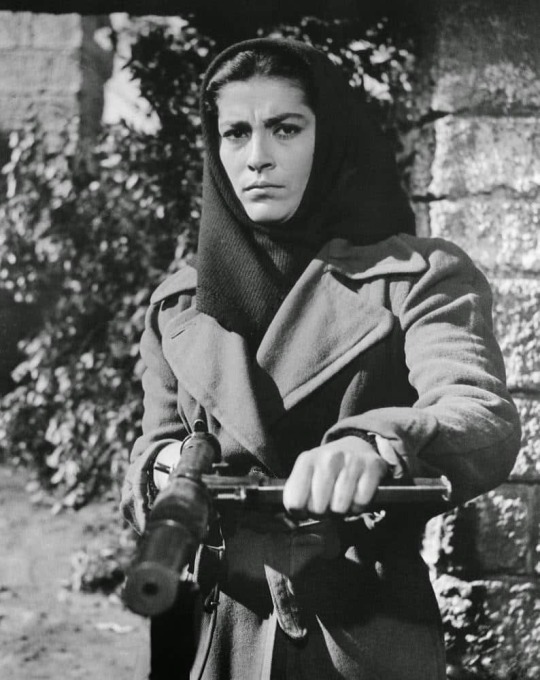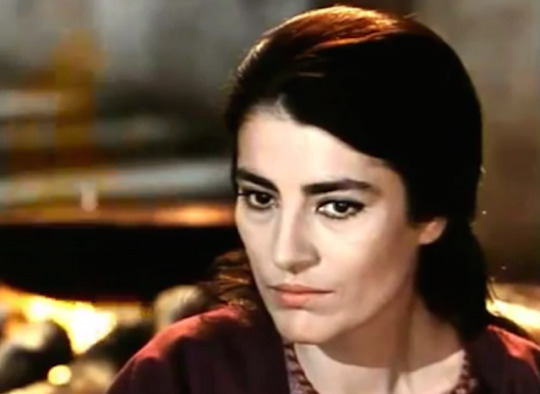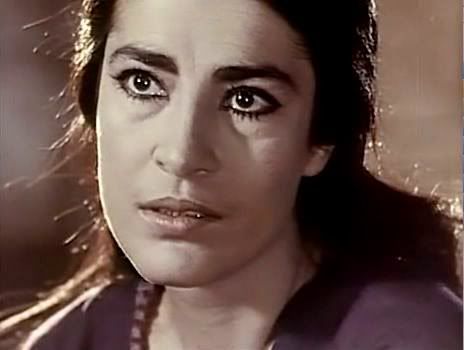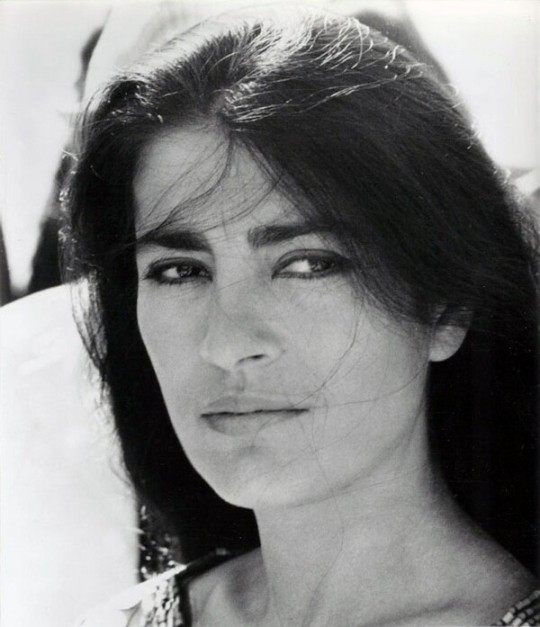#Irene Lelekou
Text
14 settembre … ricordiamo …
14 settembre … ricordiamo …
#semprevivineiricordi #nomidaricordare #personaggiimportanti #perfettamentechic
2022: Henry Silva, attore statunitense. Il suo volto, caratteristico per impassibilità e durezza dell’espressione, si è prestato spesso per la parte dell’antagonista cattivo. In Italia ebbe un certo successo negli anni settanta partecipando a film del filone western e di quello poliziesco. Proveniente da una famiglia povera di origine ispanica ed italiana, figlio di Jesus Silva e della siciliana…

View On WordPress
#14 settembre#14 settembre morti#Andrew RomaSanta#Andy Romano#Angela Isadora Duncan#Aya Igarashi#Caterina Boratto#Grace di Monaco#Grace Kelly#Grace Patricia Kelly#Henry Gibson#Henry Silva#Irene Lelekou#Irene Papas#Isadora Duncan#James Bateman#Janet Gaynor#Laura Augusta Gainor#Norm MacDonald#Norman Gene MacDonald#Patrick Swayze#principessa Grace#Ricordando ..#Ricordiamo#Sei Ashina
0 notes
Photo

Greek stage and screen actor who appeared in The Guns of Navarone, Zorba the Greek and Captain Corelli’s Mandolin
It is apposite that Irene Papas, who has died aged 96, was at her peak when playing the heroines in film versions of classical Greek tragedies. Notwithstanding her many roles in a wide range of Hollywood, international and Greek films, including The Guns of Navarone (1961), Zorba the Greek (1964) and Z (1969), Papas always gave the impression that there was an Electra, Antigone or Clytemnestra bubbling beneath the surface.
She balanced expertly between theatrical tradition and the cinema closeup, her strong, expressive face being especially eloquent in moments of silent suffering.
All the films of the Euripides trilogy – Electra (1962), The Trojan Women (1971) and Iphigenia (1976) – directed by Michael Cacoyannis, were dominated by Papas’s dramatic beauty in closeup against realistic Greek landscapes, and proved that the ancient myths could grip modern audiences. It was Cacoyannis, with whom Papas made six films, including Zorba the Greek, who brought out her talent in full.
The daughter of teachers, she was born Eirini Lelekou in a village near Corinth, and attended the royal drama school in Athens. She started her career in her teens as a singer and dancer in variety shows before launching her film career in 1948, by which time she had married the director Alkis Papas.
After two minor films in Greece, she signed a contract in Italy, where she was underused. Among them were two sword and sandals epics, Theodora, Slave Empress (1954) and Attila (1954), in which she played second fiddle – in the first to Gianna Maria Canale, and in the second to Sophia Loren with Anthony Quinn in the title role. Papas would co-star with Quinn in several films, in which they were a combustible duo.
She made an impressive Hollywood debut as the lover of a ruthless cattle baron (James Cagney) in the Robert Wise western Tribute to a Bad Man (1956). This was the female lead role and she consolidated her star status as the valiant resistance leader in the war adventure The Guns of Navarone.
In the same year, 1961, Papas took on her first Greek tragedian role in Antigone. Directed by George Tzavellas in such a way to make Sophocles’s poetic parable come across with lucidity, it allowed Papas as the intractable heroine to demonstrate her elegiac power.
Papas as Electra, in her first film with Cacoyannis, prompted the critic Dilys Powell to exclaim: “I had never thought to see the face of the great Apollo from the Olympia pediment live and move. Now I have seen it.” Roger Ebert, looking back on the Oscar-nominated film 10 years later, said: “The funereal figures of the Greek chorus – poor peasant women scattered on a hillside – still weep behind Electra, and I can never forget her lament for her dead mother. I thought then, and I still think, that Irene Papas is the most classically beautiful woman ever to appear in films.”
The Trojan Women lost the power, poetry and beauty of the ancient Greek language by being in English, but the multinational cast of Katharine Hepburn (Hecuba), Vanessa Redgrave (Andromache), Geneviève Bujold (Cassandra) and Papas as a seductive Helen of Troy, compensated somewhat. The Oscar-nominated Iphigenia (based on Cacoyannis’s stage production of Iphigenia at Aulis), the last of his Euripides trilogy, had Papas, by now in her 50s, giving a forceful performance as Clytemnestra.
Between the first and second Euripidean films, Papas played the lonely widow in Zorba the Greek who, after making love to an English writer (Alan Bates), is stoned by the Cretan villagers. The character has little dialogue, but Papas’s face and body language are eloquent enough.
Papas went on to play other widows, notably in two political thrillers, Elio Petri’s We Still Kill the Old Way (1967) and Costa-Gavras’s Z. The latter clearly pointed the finger at the colonels’ totalitarian regime in Greece, which Papas – who lived in exile in Italy from 1967 to 1974 – called “the fourth Reich”.
In 1968, among the first work Papas undertook in Italy was the mafia drama The Brotherhood, opposite Kirk Douglas, and the television miniseries The Odyssey, in which she played Penelope. She had now become a travelling player, playing Spaniards such as Catherine of Aragon in Anne of the Thousand Days (1969) or Italians such as the lusty housekeeper in Francesco Rosi’s Christ Stopped at Eboli (1979). In the 1970s and 80s, Papas made an average of two films a year, many of them unworthy of her talents.
Happily, she had the chance to shine on Broadway in two plays by Euripides, in the title role of Medea (1973) and as Agave in The Bacchae (1980), the latter directed by Cacoyannis. Of her Medea, the New York Times critic wrote: “Irene Papas, who has often played aggrieved and grieving women, brings to the role a controlled intensity, an innate intelligence, and an implacably stubborn anger.”
In films, she began to get supporting roles, bringing fire and authenticity as mothers and grandmothers as in Rosi’s Chronicle of a Death Foretold (1987) and Captain Corelli’s Mandolin (2001) before making a superb exit from cinema in Manoel de Oliveira’s multilingual A Talking Picture (2003).
At one point in the film, on board a cruise ship in the Mediterranean, Papas keeps the passengers spellbound by singing a Greek folk song. Her beautiful contralto voice can also be heard on discs of songs by Vangelis and Mikis Theodorakis.
After leaving the cinema, Papas appeared in Euripides’ Hecuba on stage in Rome in 2003, and directed Antigone at the Greek theatre in Syracuse in 2005. She also devoted herself to the establishment of schools of acting in Rome and Athens.
Papas’s first marriage ended in divorce in 1951, and her second marriage, to José Kohn, in 1957, was annulled.
🔔 Irene Papas, actor, born 3 September 1926; died 14 September 2022
Daily inspiration. Discover more photos at http://justforbooks.tumblr.com
39 notes
·
View notes
Text
Irene Papas
https://www.unadonnalgiorno.it/irene-papas/

Irene Papas è stata la più celebre attrice greca.
Nata col cognome Lelekou a Chiliomodi, nel Peloponneso, il 3 settembre 1926, era figlia di un insegnante di teatro e di una maestra. Trasferitasi con la famiglia ad Atene, ha frequentato all’Accademia d’arte drammatica innamorandosi dei grandi classici.
Ha preso il cognome dal suo unico marito, il regista Alkis Papas nel 1947 con cui, quattro anni dopo, ha divorziato.
È stata modella e poi attrice. È diventata nota nel 1952 col film La città morta presentato al Festival di Cannes.
Ha lavorato molto nel cinema italiano con registi come Monicelli, Steno, Elio Petris. Ha girato oltre 70 film tra cui gli storici Zorba il greco e I Cannoni di Navarone. Tra i tantissimi ruoli interpretati, anche a teatro e in televisione, la ricordiamo come una splendida Penelope nello sceneggiato Odissea del 1968 e come Sefora in Mose, la legge del deserto del 1974.
Nel 1987 ha presieduto la giuria della Mostra internazionale d’arte cinematografica di Venezia.
Ha partecipato all’album della celebre band greca Aphrodite’s Child intitolato 666 (1972), protagonista di una performance dalle chiarissime allusioni sessuali nel brano ∞(Infinity). Ha anche registrato due album con il compositore Vangelis.
Tra i suoi ammiratori celebri c’è stato il regista Federico Fellini e Katharine Hepburn, amica e collega che disse di lei che era “una delle migliori attrici nella storia del cinema“.
Anima inquieta, star internazionale, attivista politica esiliata dai Colonnelli greci, è stata l’ambasciatrice della cultura greca nel mondo,
Capelli corvini, sguardo intenso e ammaliatore, fisicità mediterranea, ottima tecnica, divenne presto l’icona ideale dei film in costume che strizzava no l’occhio all’antica Grecia e all’Oriente.
È stata un’attrice che ha travalicato il divismo, diventata un mito per il suo incredibile carisma che la poneva al centro della scena ogni volta che appariva sullo schermo o in palcoscenico.
Ha recitato fino agli inizi degli anni duemila, l’addio ufficiale alle scene è stato nel 2013, quando ritornata in patria, si è ammalata di Alzheimer.
Tra i tanti premi ricevuti c’è anche un leone d’Oro alla carriera nel 2009.
Si è spenta il 14 settembre 2022 nel suo paese natale.
Irene Papas è stata una grande donna, indipendente e volitiva. Una leggenda, il vero volto della Grecia di ieri e di oggi.
0 notes
Photo

Irene Papas (born Irene Lelekou 3 September 1926 – 14 September 2022)
0 notes
Text
Ndërron jetë "Penelopa", Irenë Papas
Ndërron jetë “Penelopa”, Irenë Papas
Aktorja ikonë, Irene Papas, është ndarë nga jeta në moshën 96-vjeçare. Aktorja me origjinë shqiptare, në karrierën e saj në Greqi, trajtoi role të rëndësishme femërore në teatër dhe kinema, duke mishëruar plotësisht fuqinë e tragjedisë antike.
Irene Papas, emri i vërtetë i së cilës ishte Irini Lelekou, lindi më 3 shtator 1926 në Korinth ku ajo kaloi fëmijërinë e saj. Prindërit e saj ishin mësues…

View On WordPress
0 notes
Text
È morta Irene Papas, è stata Penelope della miniserie 'Odissea'
È morta Irene Papas, è stata Penelope della miniserie ‘Odissea’
Irene Papas pseudonimo di Irene Lelekou 3 settembre1926– Chiliomodi, 14 settembre2022 è stata un’attrice greca.
articolo: https://www.repubblica.it/spettacoli/cinema/2022/09/14/news/e_morta_irene_papas_e_stata_penelope_della_miniserie_odissea-365597011/?ref=RHUO
La celebre attrice greca aveva 96 anni. Indimenticabili i suoi ruoli al cinema in ‘Zorba il Greco’ e in ‘Z – L’orgia del…

View On WordPress
0 notes
Video
El 3 de septiembre de 1926 nacía #irenepapas Irini Lelekou, más conocida como Irene Papas, es una actriz de cine, teatro y cantante griega. Ha desempeñado más de setenta papeles a lo largo de más de medio siglo de carrera. Es considerada una de las grandes actrices trágicas helénicas del siglo XX posterior a Katina Paxinou. En el año 2002 fue nombrada Europe's woman("Mujer de Europa) Contemporánea de Melina Merkouri, Irene Papas saltó a la fama internacional en películas de éxito como Los cañones de Navarone, Zora, el griego y Z de Costa Gavras. #actriceseuropeas #actricesgriegas #irenepapas💎 #cineeuropeo (en Getafe, Madrid) https://www.instagram.com/p/B17OLYGFBJ7/?igshid=1swle4oe00kc7
0 notes
Photo

Irene Papas or Pappas (Greek: Ειρήνη Παππά, romanized: Eiríni Pappá), born Irene Lelekou (Greek: Ειρήνη Λελέκου, romanized: Eiríni Lelékou; on 3 September 1926), is a Greek actress and singer who has starred in over 70 films in a career spanning more than 50 years. She gained international recognition through such popular award-winning films as The Guns of Navarone (1961) and Zorba the Greek (1964). She was a powerful protagonist in films including The Trojan Women (1971) and Iphigenia (1977). She played the title roles in Antigone (1961) and Electra (1962).
Papas won Best Actress awards at the Berlin International Film Festival for Antigone and from the National Board of Review for The Trojan Women. Her career awards include the Golden Arrow Award in 1993 at Hamptons International Film Festival, and the Golden Lion Award in 2009 at the Venice Biennale.
In 1969, the RCA label released Papas' vinyl LP, Songs of Theodorakis (INTS 1033). This has 11 songs sung in Greek, conducted by Harry Lemonopoulos and produced by Andy Wiswell, with sleeve notes in English by Michael Cacoyannis. It was released on CD in 2005 (FM 1680). Papas knew Mikis Theodorakis from working with him on Zorba the Greek as early as 1964. The critic Clive Barnes said of her singing performance on the album that "Irene Pappas is known to the public as an actress, but that is why she sings with such intensity, her very appearance, with her raven hair, is an equally dynamic means of expression".
In 1972, she appeared on the album 666 by the Greek rock group Aphrodite's Child on the track "∞" (infinity). She chants "I was, I am, I am to come" repeatedly and wildly over a percussive backing, worrying the label, Mercury, who hesitated over releasing the album, causing controversy with her "graphic orgasm".
In 1979, Polydor released her album of eight Greek folk songs entitled Odes, with electronic music performed (and partly composed) by Vangelis. The lyrics were co-written by Arianna Stassinopoulos. They collaborated again in 1986 for Rapsodies, an electronic rendition of seven Byzantine liturgy hymns, also on Polydor; Jonny Trunk wrote that there was "no doubting the power, fire and earthy delights of Papas' voice".
In 1947 she married the film director Alkis Papas; they divorced in 1951. In 1954 she met the actor Marlon Brando and they had a long love affair, which they kept secret at the time. Fifty years later, when Brando died, she recalled that "I have never since loved a man as I loved Marlon. He was the great passion of my life, absolutely the man I cared about the most and also the one I esteemed most, two things that generally are difficult to reconcile". Her second marriage was to the film producer José Kohn in 1957; that marriage was later annulled. She is the aunt of the film director Manousos Manousakis and the actor Aias Manthopoulos.
In 2003 she served on the board of directors of the Anna-Marie Foundation, a fund which provided assistance to people in rural areas of Greece. In 2018 it was announced that she had been suffering from Alzheimer's disease for five years.
Daily inspiration. Discover more photos at http://justforbooks.tumblr.com
17 notes
·
View notes